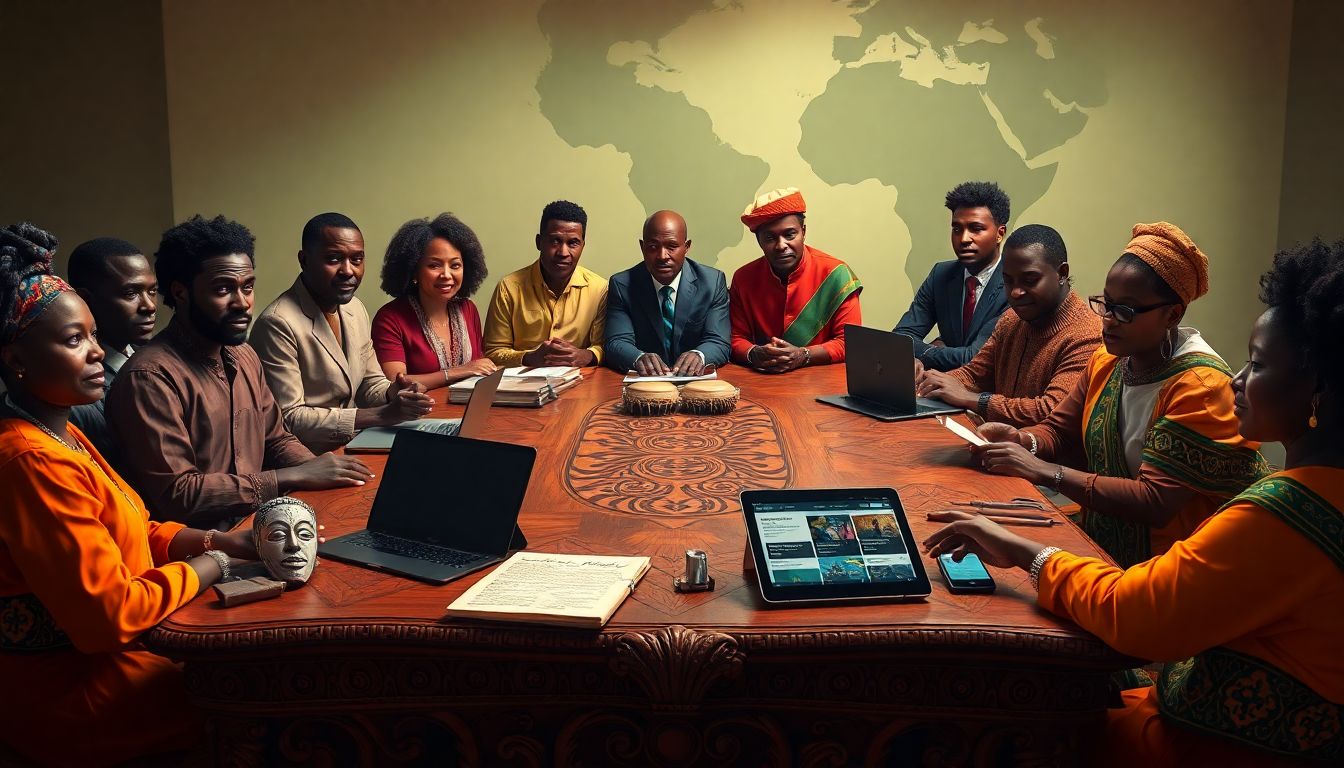Introduction: Navigating the Complexities of African Governance
Africa’s political landscape is vast and intricate. Each country presents its own set of challenges and solutions. In the midst of this diversity, Nigeria stands out as the largest nation by population. Understanding Nigeria’s political system alongside those of other African countries can offer insights and lessons that may help in improving governance across the continent.
The Diverse Political Landscape of Africa
Africa is home to many political systems, including parliamentary, presidential, and hybrid models.
- Some countries have stable democracies, while others face constant political turmoil.
- The diversity is reflected in different governance styles, legal frameworks, and civil liberties.
Nigeria’s Unique Position: Giant of Africa
Nigeria, often called the “Giant of Africa”, has a significant influence on regional politics. With over 200 million people, it plays a crucial role in economics, culture, and security in West Africa. However, political challenges such as corruption, poor infrastructure, and social unrest often overshadow its potential.
Exploring Comparative Politics for Better Governance
Studying Nigeria in comparison with other nations can reveal important trends and effective governance strategies. By analyzing various political systems, we can identify best practices and mistakes to avoid.
Presidentialism in Africa: A Comparative Analysis
Nigeria’s Presidential System: Strengths and Weaknesses
Nigeria operates under a presidential system, where the president is both head of state and government.
Strengths:
- Centralized decision-making allows swift policy implementation.
- Strong leadership can unify diverse populations.
Weaknesses:
- Risk of authoritarianism if checks and balances fail.
- High levels of corruption can undermine legitimacy.
Case Study: Comparing Nigeria’s Presidential System with Kenya’s
Kenya, like Nigeria, has a presidential system. However, Kenya has faced significant challenges regarding corruption and electoral violence.
- Both nations deal with ethnic divisions, which can influence political stability.
- Kenya’s efforts for constitutional reform provide lessons for Nigeria, particularly in decentralizing power.
Case Study: South Africa’s Hybrid System: A Different Approach
South Africa’s political system blends elements of presidential and parliamentary systems. Here, the president is elected by the parliament, ensuring accountability.
- Stability has been relatively maintained, but issues like inequality persist.
- Learning from South Africa’s model could help Nigeria enhance its democratic processes.
The Role of the Military in African Politics
Coups and Instability: A Recurring Theme in Africa
Military coups have historically disrupted governance in many African nations. This reality raises questions about civil-military relations.
Nigeria’s Military History and its Political Implications
Nigeria has experienced numerous military coups since its independence in 1960. This history greatly influences its political environment.
- The military’s past role has led to skepticism towards civilian governments.
- Ongoing security issues often result in calls for military intervention in politics.
Comparative Analysis: Military Intervention in Other African Nations
Countries like Mali and Sudan have also faced military coups.
- The outcomes vary with some restoring stability while others plunge into chaos.
- Nigeria can benefit from studying these cases to navigate its own challenges.
Democracy and Human Rights: Challenges and Progress
Evaluating Democratic Progress in Nigeria
Nigeria has made strides toward democracy since the end of military rule in 1999.
- Despite this progress, issues like electoral fraud persist.
- Citizens often face restrictions on free speech and assembly.
Comparing Human Rights Records Across African Nations
Human rights situations vary widely across Africa.
- Countries such as Ghana enjoy better records, while others, like Eritrea, face severe restrictions.
- Lessons can be drawn from these disparities to improve Nigeria’s own human rights practices.
The Impact of Civil Society Organizations
Civil society organizations (CSOs) play a vital role in advocating for rights and governance in Nigeria and across Africa.
- They provide oversight and education, promoting accountability.
- Collaborating with these organizations could deepen Nigeria’s democratic practice.
Economic Development and Political Stability
The Relationship Between Governance and Economic Growth
Stable governance often correlates with economic growth.
- Effective laws create an environment for business and investment.
- When governments fail, economies tend to struggle.
Nigeria’s Economic Challenges and Political Reforms
Nigeria’s economy is hindered by corruption and mismanagement.
- High unemployment and inflation rates are critical challenges.
- Political reforms that encourage transparency could ignite economic growth.
Case Studies: Economic Success Stories in Other African Countries
Countries like Botswana and Rwanda showcase strong economic development.
- They emphasize governance and strategic resource management.
- Nigeria can learn from these approaches to boost its own economy.
Challenges and Opportunities for Political Reform
Promoting Good Governance and Accountability
Good governance is essential for political and economic stability.
- Implementing anti-corruption measures is vital.
- Encouraging citizen participation fosters accountability.
Strengthening Democratic Institutions
Strong institutions are crucial for democracy.
- Investing in judicial independence can build public trust.
- Supporting media freedoms ensures diverse viewpoints.
The Role of Regional Organizations
Organizations like ECOWAS can aid Nigeria in political reform.
- They provide frameworks for conflict resolution and monitoring elections.
- Regional collaboration can strengthen governance across West Africa.
Conclusion: Learning from Comparative Politics in Africa
Key Takeaways and Lessons Learned
- Understanding different political systems reveals insights into Nigeria’s challenges.
- Comparison helps identify successful governance strategies and pitfalls.
Recommendations for Political Reform in Nigeria
- Strengthening democratic institutions is critical for progress.
- Emphasizing transparency and accountability can rebuild public trust.
The Future of African Governance
As African nations strive towards better governance, lessons from Nigeria and other countries will shape the continent’s political future. Embracing these lessons provides a path toward sustainable development and stability.
- Collaborative efforts among nations can foster shared solutions.
- Together, Africa can overcome its challenges and thrive in governance.

AdHang is a political campaign agency with 15 years plus in the Industry.
Want to lead the polls? Hire AdHang for your campaign needs. We’ll help you connect and succeed. Don’t wait, reach out now!
